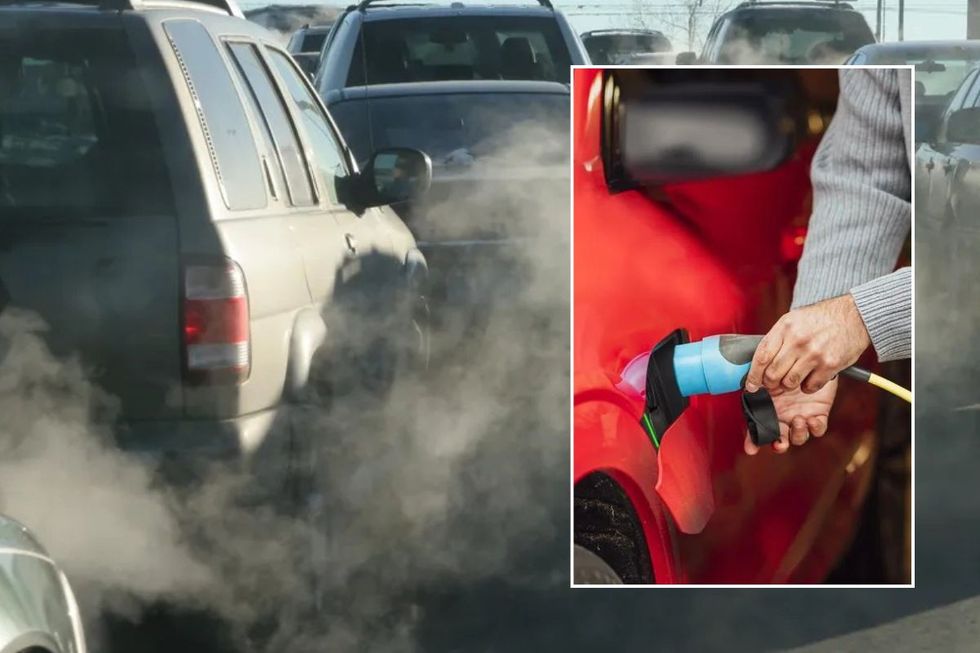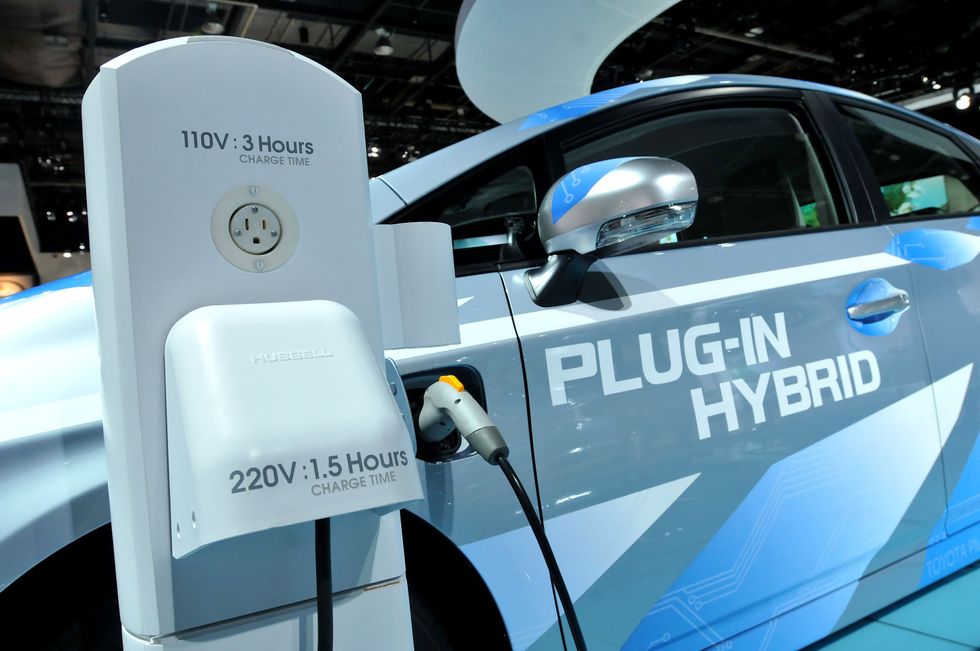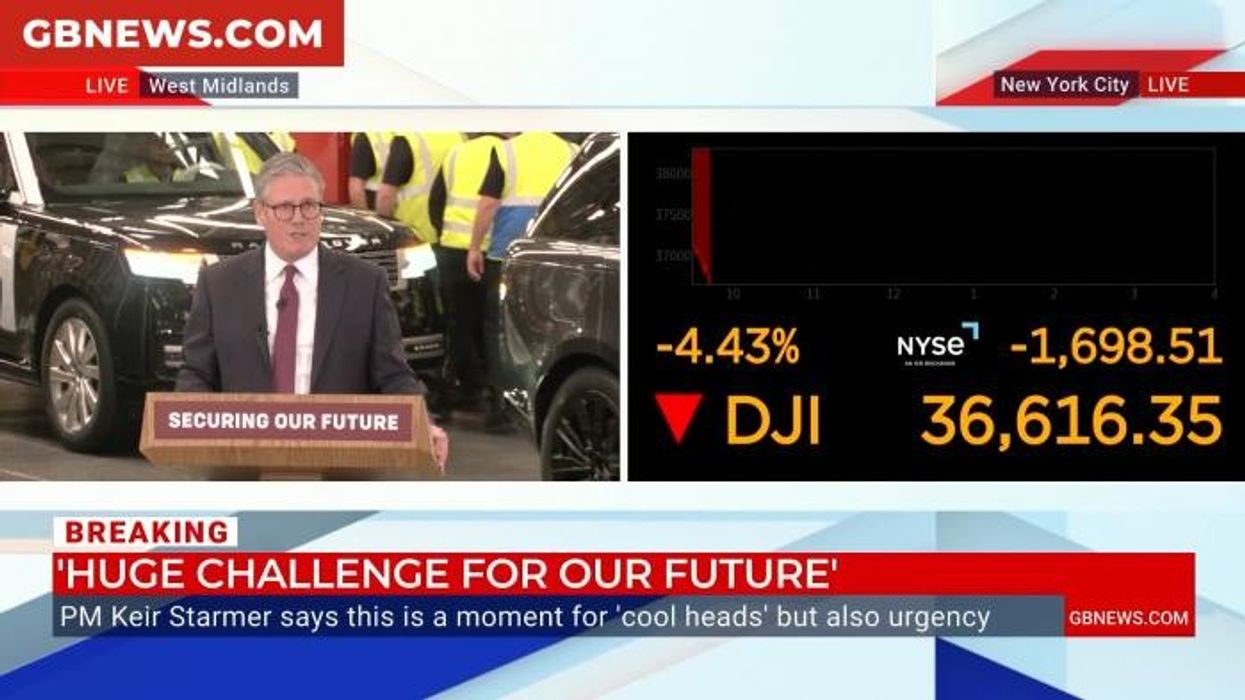Electric cars produce 73% fewer lifetime emissions than petrol and 'outperform all other' vehicles

'Battery electric cars in Europe are getting cleaner faster than we expected'
Don't Miss
Most Read
Battery electric vehicles sold in Europe generate 73 per cent fewer greenhouse gas emissions over their lifetime compared to petrol cars, according to new research.
The International Council on Clean Transportation found that hybrid and plug-in hybrid vehicles reduce emissions by just 20 per cent and 30 per cent, respectively, when compared to conventional petrol models.
The comprehensive life-cycle assessment examined emissions from vehicle production, fuel and electricity generation, maintenance and recycling across different powertrains.
Battery electric vehicles operating on Europe's projected electricity mix between 2025 and 2044 produce an estimated 63 grams of CO2 equivalent per kilometre, dramatically lower than the 235 grams generated by petrol vehicles.
Do you have a story you'd like to share? Get in touch by emailing motoring@gbnews.uk

The research found that electric cars emit 73 per cent fewer emissions than petrol and diesel vehicles
|GETTY
The findings underscore how only fully electric vehicles can deliver the substantial emissions reductions required to decarbonise passenger transport, which accounts for nearly three-quarters of the transport sector's total emissions.
The stark differences in emissions performance become clearer when examining the full life-cycle analysis.
While battery electric vehicles initially produce approximately 40 per cent more emissions during manufacturing due to battery production, these are offset after just 17,000 kilometres of driving.
This typically occurs within the first one to two years of ownership, after which electric vehicles deliver consistently lower emissions throughout their operational life.
The research also revealed that plug-in hybrids perform worse than anticipated, as drivers use electric power less frequently than previously assumed.
This finding challenges the perception that plug-in hybrids serve as an effective bridge technology between conventional and fully electric vehicles.
When powered exclusively by renewable electricity, battery electric vehicles achieve even more impressive results, producing just 52 grams of CO2 equivalent per kilometre.
This represents a 78 per cent reduction compared to petrol vehicles, demonstrating the technology's potential as Europe's electricity grid continues to decarbonise.
LATEST DEVELOPMENTS:
Marta Negri, researcher at the ICCT, said: "Battery electric cars in Europe are getting cleaner faster than we expected and outperform all other technologies, including hybrids and plug-in hybrids.
"This progress is largely due to the fast deployment of renewable electricity across the continent and the greater energy efficiency of battery electric cars."
The research indicates that battery electric vehicles' life-cycle emissions have decreased by 24 per cent compared to estimates from 2021, reflecting the ongoing decarbonisation of Europe's electricity supply.
The findings support the European Union's decision to phase out new combustion engine vehicle sales by 2035, as only battery electric vehicles demonstrate sufficient emissions reduction potential to meet climate targets.

Hybrids were found to be more polluting than people assume
| GETTYThe ICCT analysis emphasises that while vehicles running solely on so-called e-fuels could theoretically achieve similar emissions to electric vehicles, their future availability remains uncertain and costs are expected to stay prohibitively high.
Hydrogen fuel cell vehicles would need to operate exclusively on renewable electricity-based hydrogen to achieve comparable emissions reductions.
The research highlights how life-cycle assessments must account for projected changes in fuel and electricity mix throughout vehicles' operational lifetime, real-world driving conditions, and full vehicle lifespan to produce representative results.
Complementary policies, including the EU Battery Regulation's carbon footprint provisions and energy efficiency standards, could further reduce emissions across all components of vehicle life cycles.











